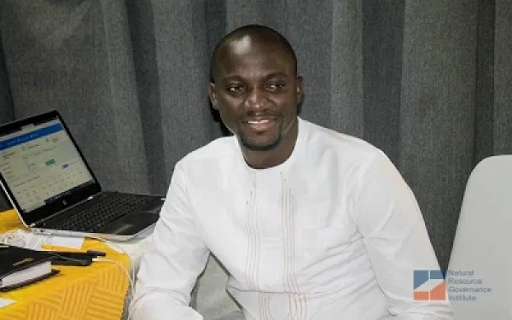MinCom and NRGI train Media and CSOs on new Minerals and Mining Regulations
The Natural Resource Governance Institute (NRG) and the Minerals Commission have jointly organized a virtual training for CSOs and the Media on newly passed Minerals and Mining (Local Content and Local Participation) Regulations, 2020 (L.I. 2431), last week.
The training was to empower CSOs and the media to hold the government to account in respect of the requirements of the L.I. 2431 under the theme: “Evaluation of L.I. 2431 Against Pre-enactment Proposals by Civil Society: Options for Sustained Advocacy.”
Prior to the passing of the new L.I. 2431 in December 2020; the Natural Resource Governance Institute (NRG) and the Minerals Commission (“MinCom” or “the Commission”) convened a consultative forum for civil society on the government’s proposal for amendments to the Minerals and Mining Act, 2006 (Act 703) and related sector reform efforts. These include a proposed law dedicated to local content in the mining sector in February 2020. The Policy Advocacy Officer at NRGI in presentation evaluated that, the new L.I. provisions are generally good.
“The proposals are generally good: Sits well with the constitutional architecture dealing with the ownership and governance of natural resources: articles 267(6); and 268(1)”, Nasir Alfa Mohammed said during his presentation on key improvements identified in the new enactment. “Gender mainstreaming also enhanced”
Read More: The Cost Of Not Saving Our Forest Reserves Is Deadly – Journalist
“Weaknesses and gaps that have arisen from obsolete or irrelevant provisions have been remedied; Aligns with the national minerals and mining policy and other national and sectoral strategic plans; Aligns with contemporary regional and international LC policies and best practices; and the requirements of local beneficiation, including local procurement and employment have significantly been enhanced.”
New L.I. Deficiencies
He, however, indicated that; “Despite strengths, there is significant room for further reform.”
He enumerated some outstanding issues that stills need attention of law maker and the regulatory agencies. The issues include: “L.I.2431 does not provide for a local content committee that will oversee day to day implementation and monitoring of local content provisions in the mining sector.”
“Given the broad powers of the Commission, NRGI and our civil society partners urged on the Commission to have introduced a local content committee or assign a dedicated office within the commission to be responsible under the law to focus on local content implementation.
“In some respects, L.I.2431 is an elaboration of requirements that existed under L.I. 2173. For example, the whole of Reg. 6 (Procurement of Local Products), except with minimal changes is a verbatim reproduction of Reg. 2 of L.I. 2173. Similarly, Regulations 4 (Recruitment of expatriates) and 5 (employment and training of Ghanaians) are substantially a verbatim reproduction of Reg. 1 of L.I. 2173.
“While some of the Regulations are clear, specific and measurable, others are broad, vague and incapable of measurement.”
Sustaining Advocacy
To increase and sustain advocacy to ensure that, the country and citizens get the best of deal and development in terms of local content from the mining sector, Mr Alfa Mohammed suggested that; “Media and civil society oversight is required to hold government accountable on LC commitments, but also to ensure future improvement in the regime.
“Leverage media/civil society’s Strategic watchdog role to lead, define and shape further reforms: CSOs and the media could coordinate key stakeholders and lead in the organization of series of dialogue on “the mining local content regime we want”. This would provide the platform for broader national dialogue on the subject to inform government’s future policy direction as well as aid Parliament in the discharge of its law making and oversight functions; and
“Regular engagement with MinCom and other government actors to deliver tailored capacity building trainings to prospective indigenous Ghanaian citizens/investors on the opportunities available to them in the mining sector”
In February 2020, the Minerals Commission (“MinCom” or “the Commission”) collaborated with the Natural Resource Governance Institute (NRG) to organize a consultative forum for civil society on the government’s proposal for amendments to the Minerals and Mining Act, 2006 (Act 703) and related sector reform efforts. These include a proposed law dedicated to local content in the mining sector.
The forum discussed some issues and concerns raised by some Civil Society Organisations (CSOs) against the previous L.I.
Some of the key issues in the previous L.I. which CSOs had problems against were: the definition for “local”. They thought it was broad and covers imported products sold in Ghana and has encouraged importing and led to decline in local manufacturing in some categories.
Also, they had problem with the first local procurement list which mainly included categories already supplied by local companies which they thought led to little increase in local goods and services.
They then sought for answers on the matter that; in the absence of clarity on existing capacity, potential for increased local supply, and a prioritized/strategic approach to developing capacity, is there a risk that the same will continue? Or that the categories in the list are way too ambitious?
The CSOs also suggested for the need for overarching government led strategic approach to build Ghanaian capacity, with linkages to other sectors of the economy.
By Adnan Adams Mohammed


